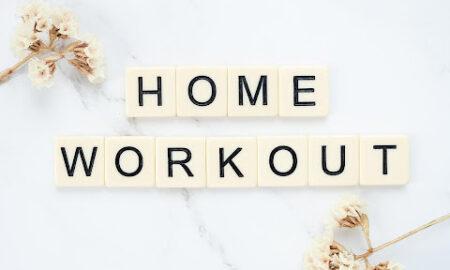At the gym this week was a young man whose excellent progress I’ve observed for a couple of years. Because I’d kept an eye on Tassos, he hadn’t done much wrong over that time, and he’d always been receptive to my input. A couple of months ago his wife gave birth to their first child, and he told me his progress was totally shot.
You, too, will experience circumstances that threaten your training—it could be a baby in your household, long hours at work or starting your own business. Your bodybuilding progress could be devastated as a result unless you take the appropriate corrective action.
Tassos’ experience reminded me of when my daughters were babies. My sleep was greatly reduced, and the demands on my time were greatly increased. Because I made some adjustments, however, I managed to make progress.
Tassos had been alternating two workouts—lower body and upper body. He did six exercises per workout, one exercise per bodypart, alternating workouts over three training days each week: upper body on Monday, lower body on Wednesday, upper body on Friday, lower body on Monday and so on. He did warmups plus two or three hard work sets per exercise. His training was abbreviated compared to the overtraining that’s standard among most bodybuilders, and that’s why Tassos was making terrific progress, naturally.
Now, though, with reduced ability to recuperate due to impaired sleep, even abbreviated training had become excessive. I urged him to adopt an emergency program—a mere five exercises three times every two weeks: Monday, Friday, Wednesday, Monday and so on. He would do squats, dips, chins, crunches and lower abs—warmups plus two work sets for each. Nothing else. With a reduced volume of training, he should be able to recuperate.
While you can mask some effects of insufficient sleep by having a few cups of coffee each day, that won’t compensate for the impairment of your recuperative abilities. You must get your sleep for that.
Sleeping well doesn’t just benefit your training. It’s vital for your long-term health and your day-to-day alertness, creativity and attentiveness. Fatigue, low energy, boredom, inattentiveness and inability to train hard are often nothing other than the effects of sleep debt.
Even getting tons of sleep won’t help your bodybuilding if you’re not training effectively, however. When I was in my late teens and early 20s, I was at the zenith of my bodybuilding fervor. I pulverized myself in the gym. I trained just two times a week, on low-volume workouts; but even with 10 hours of quality sleep each night and lots of good food, I couldn’t recover fully from my over-the-top workouts. Most bodybuilders overtrain because of excessive volume rather than excessive intensity.
One reason youngsters often make better progress than older bodybuilders is that the youngsters usually sleep better. Reproduce the slumber you had when you were younger to improve your recuperative ability today.
I gave Tassos some tips for improving the quality of his slumber. While he’s unable to do all of them now because of Tassos Junior, he will when things settle at home.
1) Establish regular sleeping habits. Going to sleep at 10 p.m. one night and 1 a.m. the next isn’t regularity. It’s better to sleep from 10:30 p.m. to 7 a.m. on a regular basis, for example.
2) Avoid napping if it disrupts your nighttime sleeping patterns.
3) Sleep on a comfortable mattress. It’s not necessarily true that a firm mattress is best or a soft mattress is undesirable. It depends on the individual, the mattress, the base of the bed and the position you sleep in.
4) Use a comfortable pillow.
5) Sleep in a pitch-black room—use shutters or blackout curtains.
6) Put a night-light in your bathroom so that you don’t have to turn a light on if you use the toilet during the night.
7) Eliminate as much noise as possible. The hum from a fan or an air-conditioning unit can mask external noise, as can a device that generates white noise.
8) Use an extra blanket in the winter. If you’re too warm or too cool, it could disturb your sleep even if you don’t feel you’re too warm or too cool. And wear socks while you sleep.
9) Don’t take sedatives or sleeping pills, as they tend to mask sleeping problems and make them worse over time. Plus, the medication can be addictive.
10) Don’t have a computer in your bedroom, or anything else associated with work. Maintain a work-free sleeping environment.
11) Don’t drink coffee or any other stimulant for at least several hours before bedtime.
12) Don’t train with weights late in the day if that has a negative effect on your sleep—train earlier.
13) To diminish the need to urinate during the night, finish your final meal two hours before retiring, avoid juicy fruit and vegetables at that meal, and minimize liquid consumption between then and bedtime. Do have a high-protein, low-liquid snack just before retiring. Catch up on liquids each morning.
14) Have a small cup of chamomile tea about two hours before bedtime. Chamomile is a well-known traditional sleeping aid.
15) Don’t watch anything that stirs your emotions in the evening; don’t deal with financial matters; don’t check your e-mail or voice mail; don’t get into any arguments; and don’t tackle any complex projects.
16) Immediately before sleep read something that relaxes you.
17) Avoid alcohol within three hours of bedtime. Alcohol is a sedative, and while it may help put you to sleep, it disrupts sleep patterns and mars sleep quality.
—Stuart McRobert
www.Hardgainer.com
Editor’s note: Stuart McRobert’s first byline in IRON MAN appeared in 1981. He’s the author of the new 638-page opus on bodybuilding Build Muscle, Lose Fat, Look Great, available from Home Gym Warehouse, (800) 447-0008, or www.Home-Gym.com.




















You must be logged in to post a comment Login